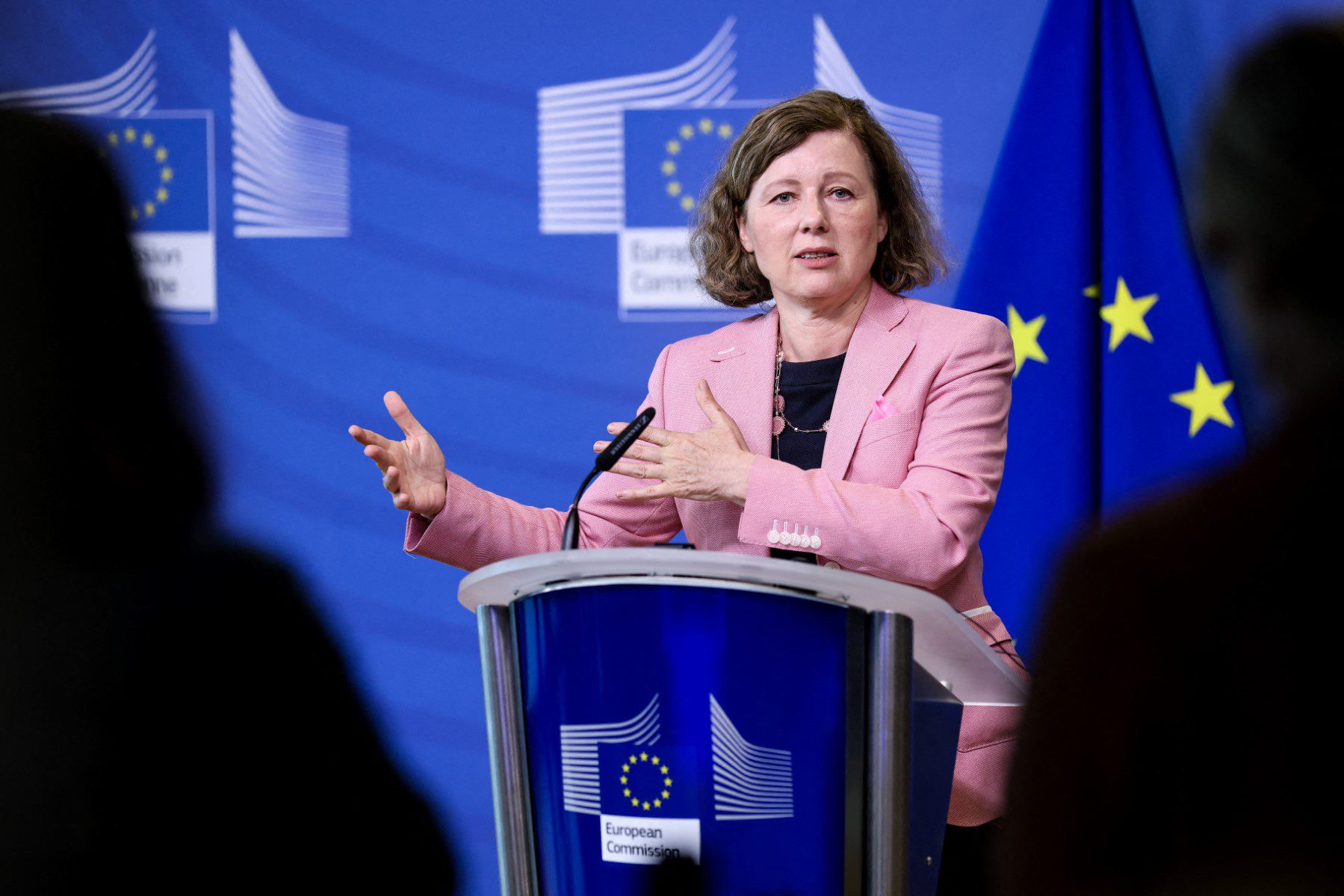
Věra Jourová, European Commission Vice President for Values and Transparency
Photo: KENZO TRIBOUILLARD / AFP
The controversial requirement for NGOs to disclose third-country funding will remain in the EU’s own upcoming ‘foreign agents act’—the Defense of Democracy Package—but those who are truly concerned with political persecution will have a chance to play by different rules, Values and Transparency Commissioner Věra Jourová revealed in a recent interview with Politico, published on Thursday, November 9th.
The package, aimed at regulating the transparency of political advertising by keeping track of the funding of European political parties and foundations—primarily to weed out Russian and Chinese influence—has been in the works for the better part of a year now.
Despite European and global NGOs initially supporting it (with 14 major organizations publicly welcoming it in a joint letter), they became increasingly concerned as it became clear that they, too, would have to adhere to the same transparency rules as those suspected to have the backing of authoritarian countries.
In short, the new law would create a public registry and force all NGOs operating in the European Union to disclose their foreign funding, regardless of where it comes from.
In May, over 230 national and international organizations signed another joint letter asking the Commission to scrap or modify its plans, citing concerns for potential “abuse” from certain governments.
Not surprisingly, U.S.-backed, leftist organizations seem heavily overrepresented among the signatories, which include—ironically—some of the biggest promoters of transparency and democracy, such as Transparency International, Human Rights Watch, Democracy International, and Soros’ Open Society Foundations, as well as several local asylum and LGBT lobbies.
In particular, the NGOs said the proposed transparency measures would “open the space for abuse and discriminatory restrictions on civil society” and even “foster a climate of distrust in the work of [NGOs].”
In other words, if they were forced to reveal their finances, European governments could (accurately) categorize these NGOs as political advertisers, hindering their ability to further their agenda—just as the law would have intended.
But if ensuring the integrity of European elections is the goal of the package, as the Commission has repeatedly stated, then it should be pursued regardless of whether Moscow or Washington is behind them.
Nonetheless, months of lobbying from the Left appear to have finally succeeded.
After confirming that the package is still on the table and that she expects the Commission to adopt it by the end of the year, Commissioner Jourová added that the current version leaves some room for preferential treatment in certain cases.
Those NGOs that face “a justified risk” of repercussions in certain member states, the commissioner said, could request to be included in a “nonpublic part of the register.” But with the official proposal still on the drafting table, several things remain unclear about this phrasing.
For one, how and by whom will the level of “justified risk” be assessed? If not the public, for whom will the “nonpublic” registry be open to? And what is the point of having a nonpublic registry in the first place if the goal is to ensure transparency and the integrity of elections, thereby strengthening European democracy? Leaving out the demos does not seem too democratic.
We reached out to the European Commission for clarifications, and a spokesman confirmed that it is looking into “specific safeguards,” including the public availability of the information. He did not elaborate further, other than adding that “tackling foreign influence” and “encouraging inclusive civic engagement” are equally important goals of the legislation.
Nonetheless, we have an idea of how this might play out.
In the letter we referred to above, the 230 NGOs specifically reference Hungary and its conservative government, which introduced allegedly “discriminatory, unjustified, and unnecessary” restrictions on civil society. They conveniently leave out the fact that several U.S.-backed NGOs were caught funnelling millions of dollars into the left-wing opposition’s campaign during the last Hungarian elections, which is exactly the type of interference this law is aiming to prevent.
The Commission seems to have given in to the leftist lobby again, giving a free pass for foreign actors to spread thinly veiled political messaging in the EU—but probably only against conservative governments.
This article was updated on Friday, November 10th to include comments from the EU Commission spokesman.
